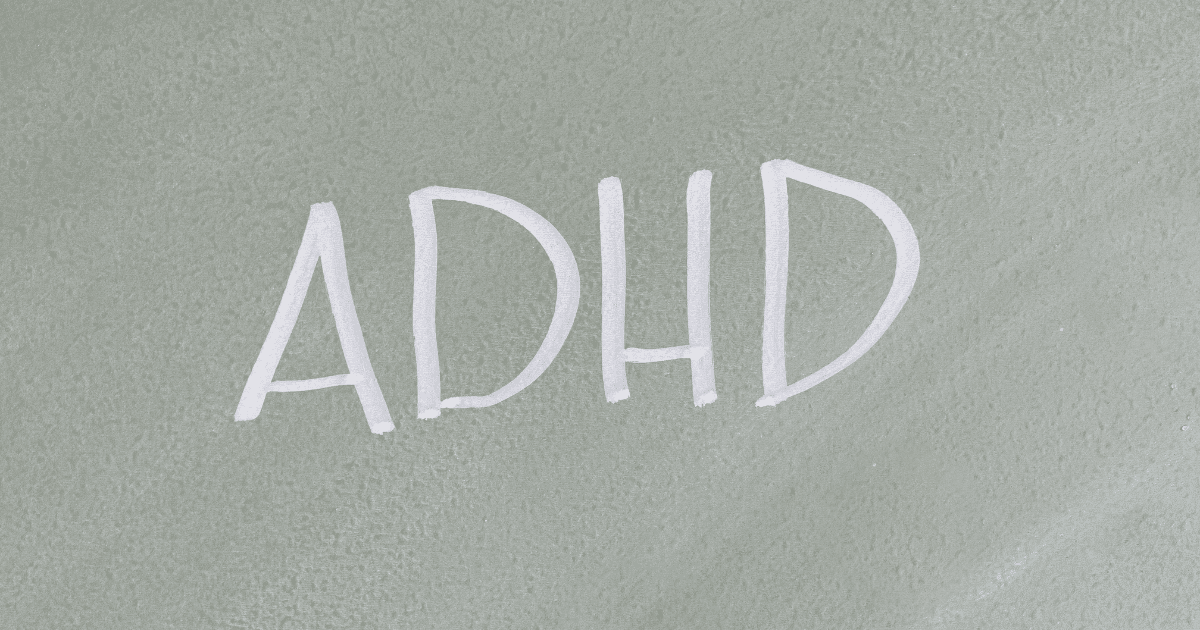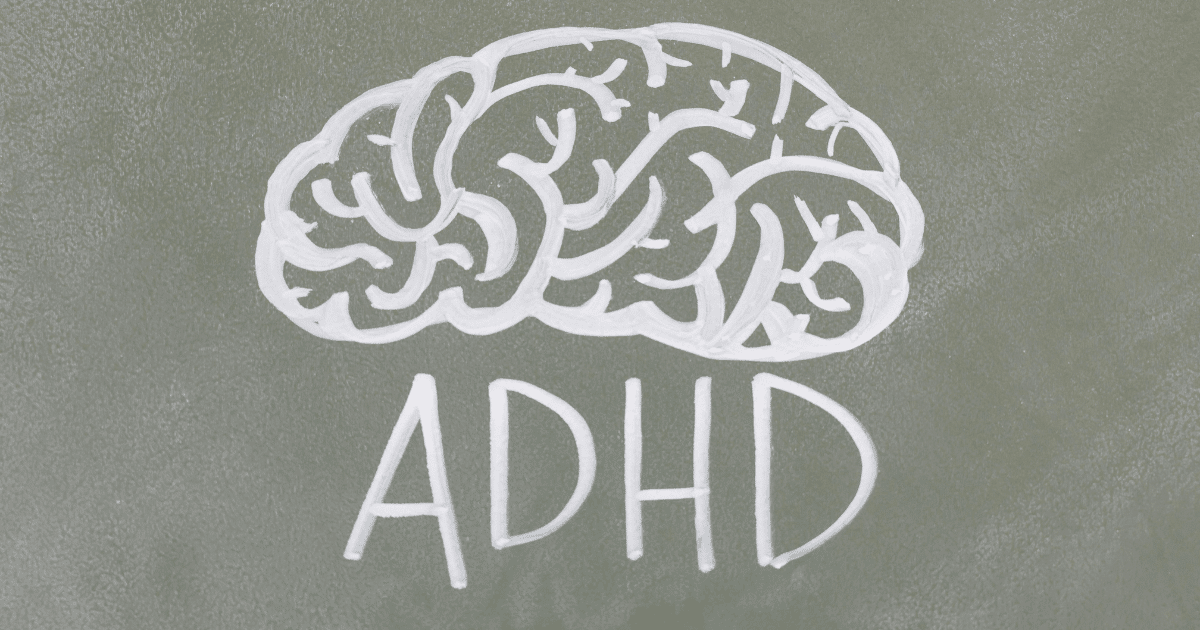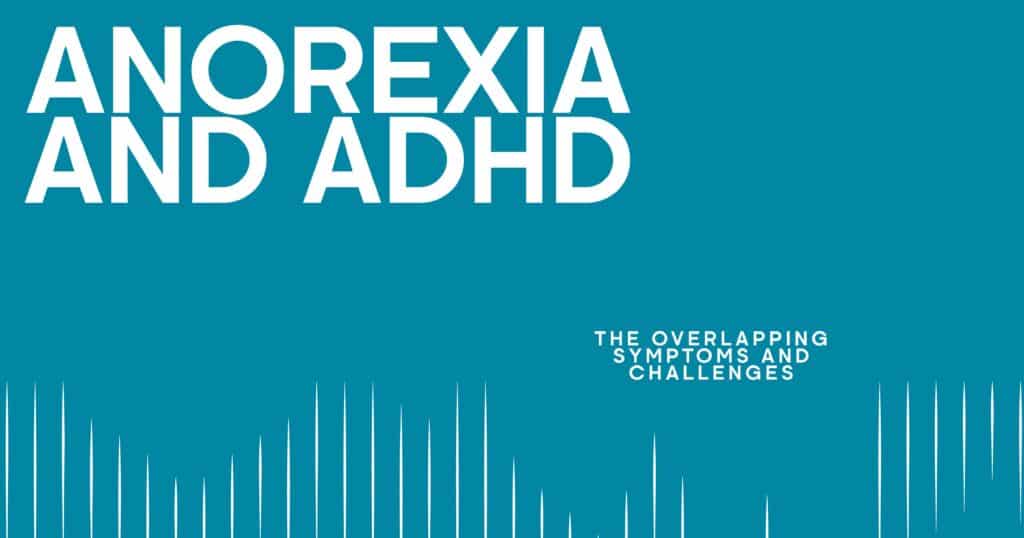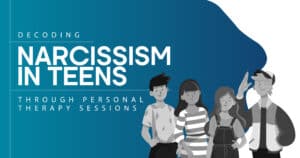The interconnectedness of attention-deficit/hyperactivity disorder – commonly abbreviated as ADHD – and eating problems has been evident for years. Some people develop an eating disorder on top of ADHD during childhood while others begin to struggle with the manifestations of both when they grow up.
Let us take a look at the connection between ADHD and anorexia – we will learn why people with ADHD often have a difficult relationship with food, what can be done to target both issues at once, and how ADHD medication may affect your eating habits.
Understanding the Link Between Anorexia and ADHD
Although you may think disorders like ADHD and anorexia do not have anything in common, there are certain symptoms that overlap in both instances:
- A person with ADHD, just like a person with anorexia, may struggle with regulating their emotional responses which is then reflected in their behavior whether they are excessively talking and fidgeting or limiting the amount of food they eat.
- Anorexic people and individuals with ADHD often focus on a specific thing that consumes their thoughts and takes up most of their time.
- If an individual with ADHD cannot be in control of their condition, they want to make sure they are able to be in charge of something – anorexia provides them with a false sense of security and self-confidence.
California Mental Health
ADHD and Eating Disorders: What the Research Shows
It is confirmed a person diagnosed with ADHD is more likely to develop an eating disorder when compared to their peers – it may be anorexia, bulimia, binge eating disorder, or avoidant/restrictive food intake disorder.
Even if at first the eating habits of an individual seem harmless, they might start separating foods into good and bad categories, binge eating food that damages their health and leads to further complications and body image issues, and concentrating on eating to calm themselves down when ADHD prevents them from doing it in a safe and healthy way.
If your ADHD affects your personal and professional life, you will struggle with your self-esteem and feel that your relationships with other people become strained – you may believe that the only way for you to release these negative emotions is to either focus all your attention on food or eat less than needed for your health especially if you have been perceiving your body in a negative light prior to the development of an eating disorder.

Why People With ADHD Struggle With Food
Why does ADHD cause eating disorders? Impulsivity, sensory sensitivities, and emotional regulation problems are among the main factors that make it hard for a person with ADHD to have a normal relationship with food:
| Reason | Description |
| Lack of Structure and Focus | Disorganization and inability to concentrate may lead to involuntary fasting – an individual with ADHD might not follow a meal schedule or remember about proper nutrition |
| Emotional Dysregulation | When emotions become overwhelming, an individual may resort to unhealthy coping mechanisms such as anorexia or bulimia – it helps them control their mood swings and deal with stress |
Impulsiveness | People with ADHD are often impulsive – for example, they may not be able to control their binge eating. Anorexia is also associated with impulsivity – it may be the result of reckless choices and acting without thinking about long-term consequences |
| Food Sensitivities | It is quite common when a person with ADHD feels very strongly about the way their meals look, smell, and taste, which makes them stop eating certain foods, often in secret |
Dietary Restrictions | Studies have shown that if parents force their child to maintain a strict diet before or after ADHD symptoms manifest, it is more likely the person in question will have an unhealthy relationship with food when they grow up as well as avoid various ingredients |
California Mental Health
Treatment Approaches for Anorexia and ADHD
Individualized treatment is key when it comes to treating anorexia and ADHD at the same time, which is why any patient who exhibits the symptoms of both disorders is strongly advised to consult with a mental health professional in regard to the treatment plan they should adopt.
From CBT to Nutrition Therapy to Medication Management
| Therapeutic Approach | Description |
| Individual Therapy | Talking to a therapist in a private setting is the most effective way to address your inner conflicts, master coping skills to deal with ADHD, and understand the root causes of your eating disorder |
| Group Counseling | You have an opportunity to relate to your peers who have had the same or similar experiences – they can give you hope and comfort when you feel alone and isolated |
| Cognitive Behavioral Therapy (CBT) | Many emotional problems stem from unhealthy thought patterns – you can learn to recognize them and change the way you perceive yourself, your mind, and your body |
| Dialectical Behavior Therapy (DBT) | A person whose emotions get the best of them will benefit from a therapy modality whose purpose is to teach the patient to accept their feelings and improve their behavior in stressful situations |
| Nutrition Counseling | You can be more mindful in regard to your diet with the help of a nutrition counselor who will prepare an individualized meal plan in order to help you regain your strength |
| Medication Management | Only a psychiatrist is allowed to prescribe the medication that will target the symptoms of both disorders – it is essential to select the medication that will not stand in the way of a person’s recovery |
Can ADHD Medication Affect Eating Behaviors?
If you follow the instructions of the mental health specialist who prescribed you a particular medication, you should avoid the adverse effects of the drug as well as know when to inform the psychiatrist about side effects that might drastically change your eating habits. As long as you are honest with the mental health professional about your symptoms and do not misuse ADHD stimulants, your eating behavior is not going to change.

Appetite Suppression and Monitoring Side Effects
Patients who were prescribed ADHD medications such as Adderall and Ritalin have noticed their appetite has changed, they burn calories at a faster rate, and they are able to lose weight as they manage their ADHD with these prescription drugs. This once again proves the need to pay attention to your eating behavior, especially during the early stages of ADHD treatment – let your healthcare provider know if you cannot enjoy food as much as you did or if you feel forced to skip meals due to the medication you are taking.
Holistic Support Starts With a Conversation – Contact CA Mental Health
When ADHD and anorexia co-occur, it takes a toll on a person’s mental and physical health – it is difficult enough to try to manage one of these problems on your own or with the help of family and friends, and the task feels virtually impossible when you have to deal with two issues simultaneously.
Do not hesitate to seek professional help whether you know about your diagnosis or suspect the presence of a problem – reach out to CA Mental Health now to schedule a consultation and regain control over your life.
California Mental Health
FAQs
Can ADHD cause eating disorders?
While eating disorders are rarely caused by ADHD directly, the presence of this condition increases the likelihood of bulimia or anorexia. ADHD often results in risky behavior and in attempts of the individual to be in charge of their life – if the only thing you are able to control is your food intake or lack thereof, it is inevitable you will concentrate your efforts on ways to eat more or not eat at all.
Why do people with ADHD struggle with food?
It is challenging for a person with ADHD to keep their eating habits in check as well as follow a healthy eating plan to ensure they get enough nutrients and vitamins. They are often sensitive to certain smells and flavors, they may forget to eat or postpone their meals in favor of other activities that help them feel less anxious and insecure, or they may hyperfixate on a particular food even if it is not healthy for them in the long run.
How are ADHD and anorexia connected?
If your ADHD makes you avoid foods you find disgusting, it may easily turn seemingly innocent dietary preferences into anorexia. Besides, if you are treating your ADHD with prescription medication, your appetite will decrease, which may not be the best option for a person who used to skip meals in the past and might exhibit the signs of anorexia.
What are treatment options for ADHD and eating disorders?
When you have an eating disorder and ADHD at the same time, it is important to address the two issues simultaneously to avoid further health complications. Individual counseling, evidence-based therapy modalities like CBT, nutritional therapy, and a patient’s commitment to change their lifestyle to focus on healthy nutrition and proper routine can contribute to successful recovery.
Can medication for ADHD impact appetite?
The majority of people who take ADHD medication have reported weight loss and reduced appetite – stimulants can do that in addition to increasing your motivation and reducing your hyperactivity.







